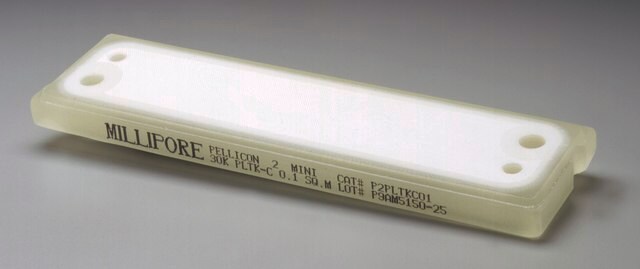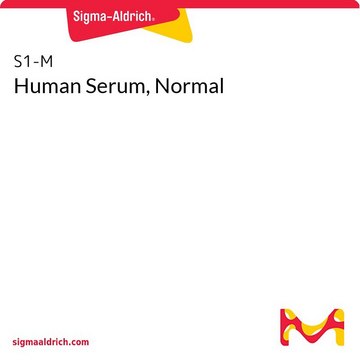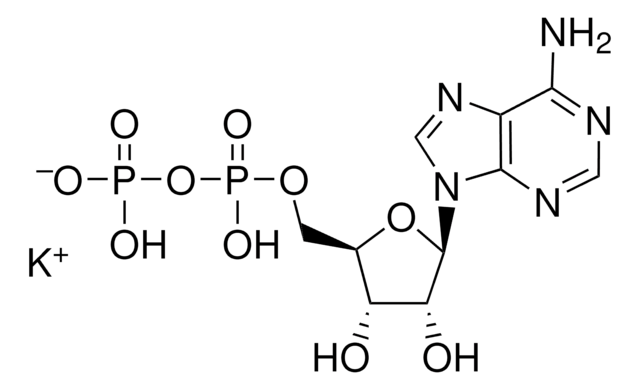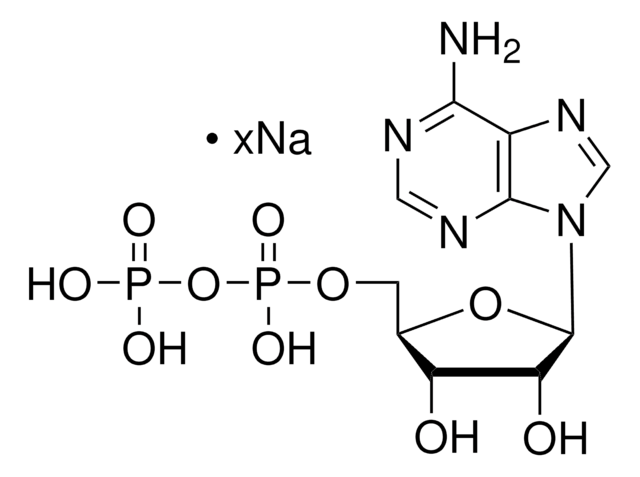HTS028RTA
Ready-to-Assay sst2 Somatostatin Family Receptor Frozen Cells
Human
About This Item
Produits recommandés
Nom du produit
Ready-to-Assay sst2 Somatostatin Family Receptor Frozen Cells, Human sst2 GPCR frozen cells for Calcium Flux FLIPR Assays.
Source biologique
human
Niveau de qualité
Fabricant/nom de marque
Ready-to-Assay
Technique(s)
calcium flux assay: suitable
Numéro d'accès NCBI
Méthode de détection
fluorometric
Conditions d'expédition
dry ice
Description générale
Somatostatin (sst) is a multifunctional peptide with two biologically active forms, sst-14 and sst-28, which are synthesized in neurons throughout the brain as well as in peripheral tissues such as the pancreas and the gut (Gillies, 1997). SST exerts a diverse array of effects that include inhibition of endocrine secretion, modulation of neurotransmission, and regulation of cell proliferation by stimulating a family of five G-protein-coupled receptors. Somatostatin receptor sst2 mRNA is predominantly expressed in central nervous system. Study using sst2 knock-out mice has found the increased anxiety-related behaviour while locomotor and exploratory activity was decreased in stress-inducing situations (coupled with an increase in pituitary ACTH release, a regulator of the stress response) (Viollet et al., 2000) . In the periphery, inhibition of glucagon release by sst in mouse islets is primarily mediated via sst2 (Strowski et al., 2000). In addition, endogenous sst functions through sst2 to suppress gastric acid secretion through inhibition of gastrin activity (Martinez et al., 1998). Millipore’s cloned human sst2-expressing cell line is made in the Chem-1 host, which supports high levels of recombinant sst2 expression on the cell surface and contains high levels of the promiscuous G protein Gα15 to couple the receptor to the calcium signaling pathway. Thus, the cell line is an ideal tool for screening for agonists, antagonists and modulators at sst2.
Description de la lignée cellulaire
Actions biochimiques/physiologiques
Composants
Code de la classe de stockage
10 - Combustible liquids
Classe de danger pour l'eau (WGK)
WGK 1
Point d'éclair (°F)
Not applicable
Point d'éclair (°C)
Not applicable
Certificats d'analyse (COA)
Recherchez un Certificats d'analyse (COA) en saisissant le numéro de lot du produit. Les numéros de lot figurent sur l'étiquette du produit après les mots "Lot" ou "Batch".
Déjà en possession de ce produit ?
Retrouvez la documentation relative aux produits que vous avez récemment achetés dans la Bibliothèque de documents.
Notre équipe de scientifiques dispose d'une expérience dans tous les secteurs de la recherche, notamment en sciences de la vie, science des matériaux, synthèse chimique, chromatographie, analyse et dans de nombreux autres domaines..
Contacter notre Service technique








